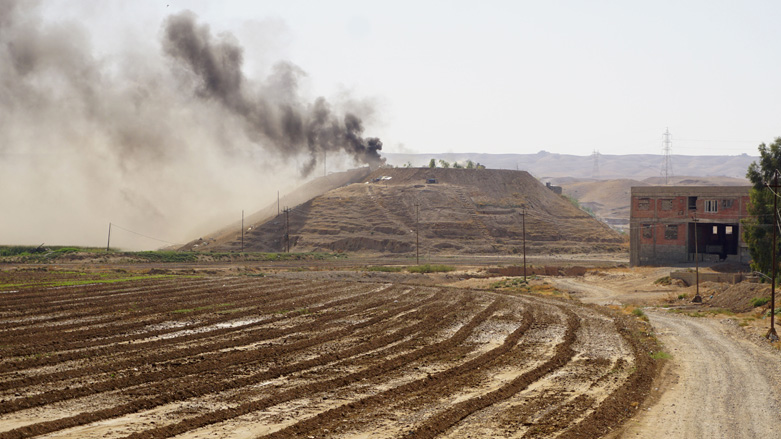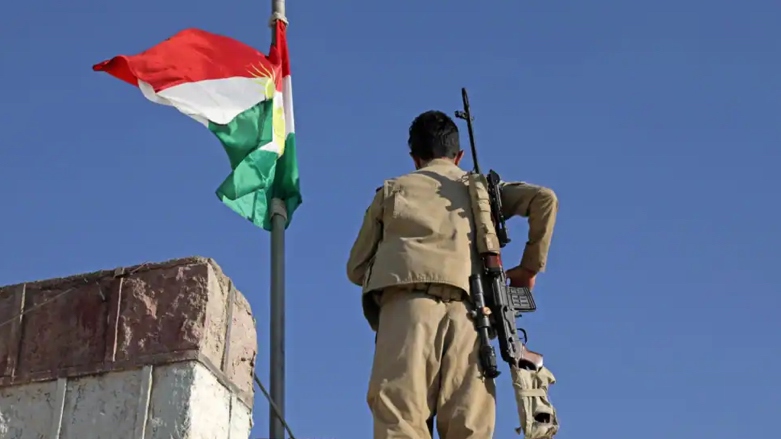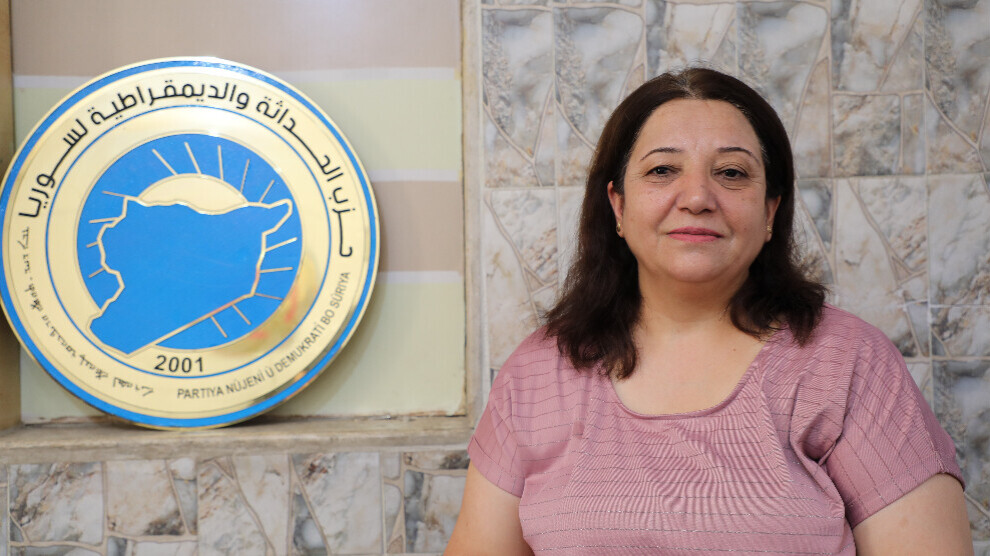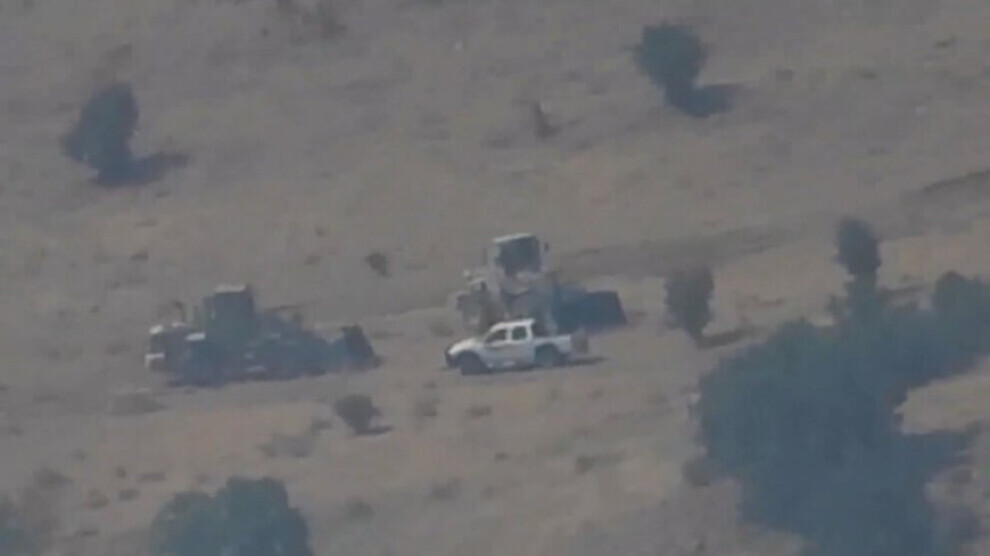Iran’s Revolutionary Guard say the attack targeted “terrorist” groups in the Kurdish region of northern Iraq.
(Al Jazeera)
At least one person was killed after rockets fired by Iran hit the headquarters of an Iranian Kurdish party in the city of Koye, near Erbil, the capital of the autonomous Kurdish region of northern Iraq.
The attack on Monday also injured 10 others, according to the mayor of Koye, Tariq Haidari.
Iran’s Fars News Agency said that the Revolutionary Guard Corps (IRGC) had been behind the attack, which it said targeted “terrorist groups” with missiles and drones.
The IRGC have launched attacks on Iranian Kurdish militant opposition bases in the Kurdish region of northern Iraq since the death of Iranian Kurdish woman Mahsa Amini on September 16.
Amini’s death, which occurred after she had been detained by Iran’s so-called morality police, has led to weeks of protests.
Iran has accused Kurdish militants in northern Iraq of fomenting the unrest which has gripped the country.
More to follow.
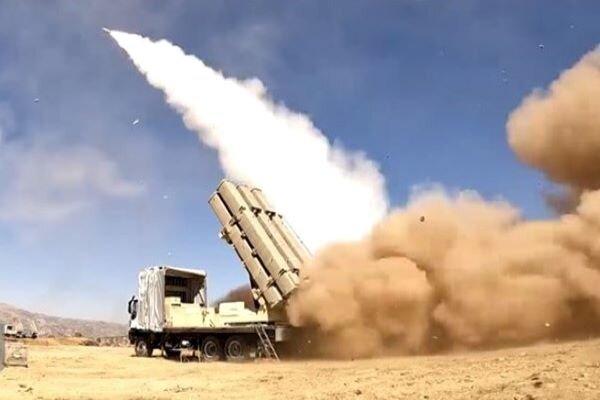
New sources reported that the positions of terrorist groups in the Iraqi Kurdistan region came under missile and drone attacks by Iran’s Islamic Revolutionary Guard Corps (IRGC).
Referring to recent hostilities by mercenary terrorists of global arrogance against the Islamic Republic of Iran, IRGC said in a statement that IRGC will not tolerate the continuation of this situation.
Border and internal security are one of the red lines of the Islamic Republic of Iran, it said.
The statement also called on authorities of the Iraqi Kurdistan region to protect and support the stability and security of the region, and common borders and fulfill their obligations towards the Islamic Republic of Iran.
The Armed Forces of the Islamic Republic of Iran have repeatedly warned that they will never tolerate the presence and activity of terrorist groups along the country's northwestern borders and they will give a strong and decisive response to any slightest mischievous moves.
Iranian missiles strike Kurdish dissidents in northern Iraq, killing at least one person
The Iranian Kurdish party Kurdistan Democratic Party of Iran (KDPI) has been a target of Iran's strikes in the past
:quality(70)/cloudfront-eu-central-1.images.arcpublishing.com/thenational/ZQMXZVEPNC77ZZMRVP2VXOATDE.jpg)
A grab from a handout video made available by the Iranian Military on Farsnews Agency social media on 29 September 2022 is said to show missile lunching during an attack on Iranian Kurdish opposition positions in Iraq, from an undisclosed location, Iran. The IRGC said they launched fresh attacks early on 28 September using explosive-laden drones and missiles targeting positions of the Kurdish opposition parties in Erbil and Sulaymaniyah provinces of Iraq's Kurdistan Region. The IRGC initially launched the first attack on 24 September targeting what they describe as 'terrorist groups' in the Kurdistan Region and accusing the Kurdish parties of fueling the latest wave of protests in Iran and unrest along border cities. EPA
At least one person was killed when several Iranian missiles struck the headquarters of the Kurdistan Democratic Party of Iran (KDPI) in northern Iraq on Monday morning.
Ten others were wounded, the mayor of the city of Koya Tariq Haydari said. Koye is located outside the city of Erbil, the regional capital of Iraqi self-ruled Kurdistan region.
The casualty figures are likely to increase, he said.
“Telegram channels affiliated to Iran's Revolutionary Guard Corps (IRGC) claim responsibility for the missile and drone attack targeting KDPI headquarters,” Kurdish news outlet Rudaw reported.
The Kurdish group, known by the acronym KDPI, is a leftist armed opposition force banned in Iran.
The KDPI declared war against the Iranian government after the 1979 revolution and is among several Iranian Kurdish parties whose fighters attack Iranian and Turkish forces from their bases in the mountainous border areas of Iraqi Kurdistan.
Iran has been attacking the armed Kurdish opposition groups that based in northern Iraq since September, accusing them of fanning the continuing protests across the country. It has used artillery fire, missiles and drones.
Since then, the Iranian regime has been struggling to contain widespread anti-government demonstrations ignited by a young woman's death in police custody.
The death of Mahsa Amini, 22, who was detained by the country's morality police in Tehran, triggered unrest in the capital and Iran's provinces.
Amini’s family is from Iran’s western Kurdish region bordering Iraq.
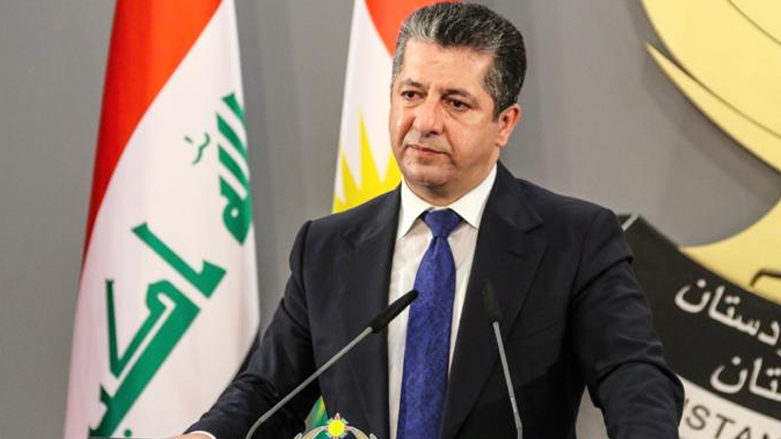
ERBIL (Kurdistan 24) – Kurdistan Region Prime Minister Masrour Barzani on Monday condemned the “violations” of Iraq and its Kurdish region’s sovereignty, following the renewed attacks by the Islamic Revolutionary Guards Corps (IRGC) on the headquarters of Iranian-Kurdish groups.
Barzani’s condemnation came during a speech he delivered at the inauguration of the Kurdistan Innovation Institute (KII) in Erbil.
“We condemn the violations of Iraq’s and Kurdistan Region’s sovereignty,” Barzani said on the early Monday attack, wishing the injured a speedy recovery.
At least five missiles have hit the headquarters of the Kurdistan Democratic Party of Iran (KDPI) in the Koya district in the east of Erbil province. The Islamic Revolutionary Guard Corps claimed responsibility for the attacks, the military-affiliated media announced.
At least three have been killed while eight others were wounded, the Kurdish medical officials announced.
The renewed attacks from Iran came in less than two months of another barrage of missile and drone strikes against the groups that also resulted in civilian causalities. Kurdistan 24 correspondent Soran Kamaran was critically injured while covering the bombardment south of Erbil in late September.
Iran has accused the Kurdish opposition groups to have fueled the recent mass protests that engulfed over 100 cities, sparked by the death of a Kurdish girl Mahsa (Zhina) Amini in police custody.
ERBIL (Kurdistan 24) – The Kurdish Iranian opposition groups based in the Iraqi Kurdistan Region have been attacked multiple times by missiles and drones since early Monday, according to official sources and witnesses.
The Kurdistan Democratic Party of Iran (KDPI)’s headquarters in Koya was bombarded by five missiles early on Monday morning by the Islamic Republic of Iran, Tariq Haydari, the town’s mayor, told Kurdistan 24.
The IRGC later claimed responsibility for the attacks that resulted in a number of casualties, the military-affiliated news agencies reported.
The district is located 76 kilometers (approximately 47 miles) from the capital Erbil.
The headquarters of the left-wing Komala Party, another Kurdish opposition group to the Islamic Republic of Iran, was bombarded similarly in southern Sulaimani province.
Iran has accused the Kurdish opposition groups to have fueled the recent mass protests that engulfed over 100 cities, sparked by the death of a Kurdish girl Mahsa (Zhina) Amini in police custody.
ERBIL (Kurdistan 24) – The Canadian Embassy in Iraq, the US Consulate General in Erbil, the UN Assistance Mission for Iraq (UNAMI) and the German Consulate General in Erbil on Wednesday made statements on the renewed Iranian attacks on the Kurdistan Region.
We condemn the renewed Iranian missle and drone attacks on the #KRI. As in September of this year, we urge Iran to respect the territorial integrity and sovereignty of Iraq. The attacks have to stop immediately.— German Consulate Erbil (@GermanyInKRI) November 14, 2022
"We condemn the renewed Iranian missle and drone attacks on the #KRI (Kurdistan Region of Iraq)," the German Consulate Erbil said.
"As in September of this year, we urge Iran to respect the territorial integrity and sovereignty of Iraq. The attacks have to stop immediately."
Also the US Consulate General in Erbil in a tweet underlined that the US strongly condemned "the Iranian drone and missile attack on the Iraqi Kurdistan Region today."
Moreover, the US called on Iran to stop attacking its neighbor & the people of Iraq. "We stand with the Iraqi government's leaders in Baghdad and the IKR (Kurdistan Region of Iraq) and condemn these violations of Iraqi sovereignty."
The UN Assistance Mission for Iraq (UNAMI) also condemned the "renewed Iranian missile and drone attacks on KR (Kurdistan Region), which violate Iraqi sovereignty."
"Iraq should not be used as an arena to settle scores and its territorial integrity must be respected. Dialogue between Iraq and Iran over mutual security concerns is the only way forward."
Moreover, the Canadian Ambassador Greg Galligan in a tweet said the continued Iranian attacks on the Kurdistan Region are "entirely unacceptable."
"These attacks violate Iraq’s sovereignty, jeopardize civilian lives and do nothing to address the legitimate demands of the Iranian people for change."
Also the UK condemed the attack.
"The UK strongly condemns Iran’s renewed attacks on the KRI today," UK Consul General to the Kurdistan Region David Hunt, tweeted on Monday. "Iran must cease this aggression against its neighbour immediately."
The Islamic Revolutionary Guard Corps (IRGC) began its missile and drone strike on Monday morning in Koya and Sulaimani (Slemani).
According to a report by the Hengaw Organization for Human Rights, the Democratic Party of Iranian Kurdistan's (PDK-I) headquarters and civilian camps were struck by the IRGC with five ballistic missile strikes in Koya.
Moreover, a base of Komala Toilers Party of Kurdistan was hit in the Sulaimani province, without causing any casualties.
During the attack, two PDK-I fighters lost their lives. At least ten other persons were injured, two of whom were transported to hospitals in Erbil for surgery, the Hengaw report added. Additionally, a civilian from Koya passed away from a cardiac attack.
The renewed attacks from Iran came in less than two months of another barrage of missile and drone strikes against the groups that also resulted in 14 casualties.
Iran has accused the Kurdish opposition groups to have fueled the recent mass protests that engulfed over 100 cities, sparked by the death of a Kurdish girl Mahsa (Zhina) Amini in police custody.
Read More: PM Barzani condemns ‘violations’ of Kurdish, Iraqi sovereignty after Iranian missile, drone attacks
“We condemn the violations of Iraq’s and Kurdistan Region’s sovereignty,” PM Masrour Barzani said on the early Monday attack, wishing the injured a speedy recovery
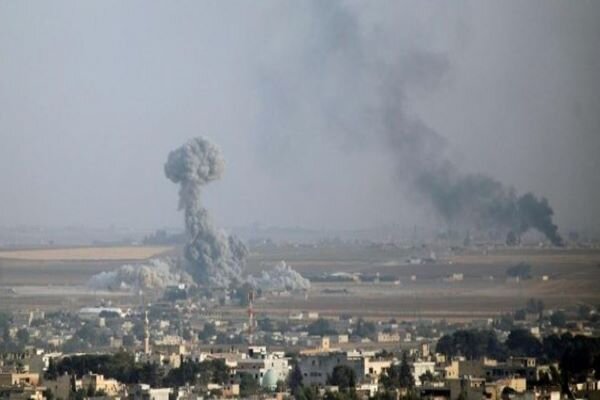
Turkish reconnaissance drones observed and identified two rocket systems and several terrorists affiliated with the PKK and YPG who were ready to infiltrate the operational area in northern Syria, according to a statement released by the Ministry of National Defense.
The statement also added that the positions and rocket systems belonging to the terrorists have been targeted by the artillery unit of the Turkish army.
No reports have been released about the possible casualties of this attack.
Earlier on Sunday, the Turkish Ministry of National Defence announced that 455 PKK elements have been killed since the start of the Claw-Lock Operation in northern Iraq.
Under the pretext of fighting PKK terrorists, Turkey has deployed its troops in areas of northern Iraq and Syria and is conducting aerial attacks on parts of the northern areas of these countries.
Ankara has received widespread criticism from both Iraqi and Kurdish authorities in Bagdhad and Erbil as well as the international community for violating Iraqi sovereignty under the pretext of fighting the PKK.
RHM/IRN84942216
:quality(70)/s3.amazonaws.com/arc-authors/thenational/9e2159fa-e4db-4215-b498-6b3607b75bee.png)
